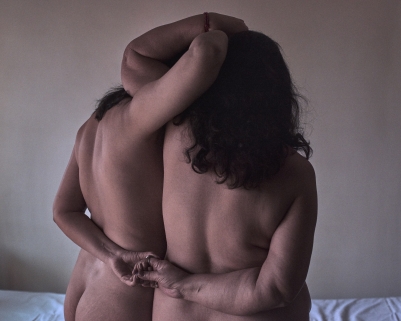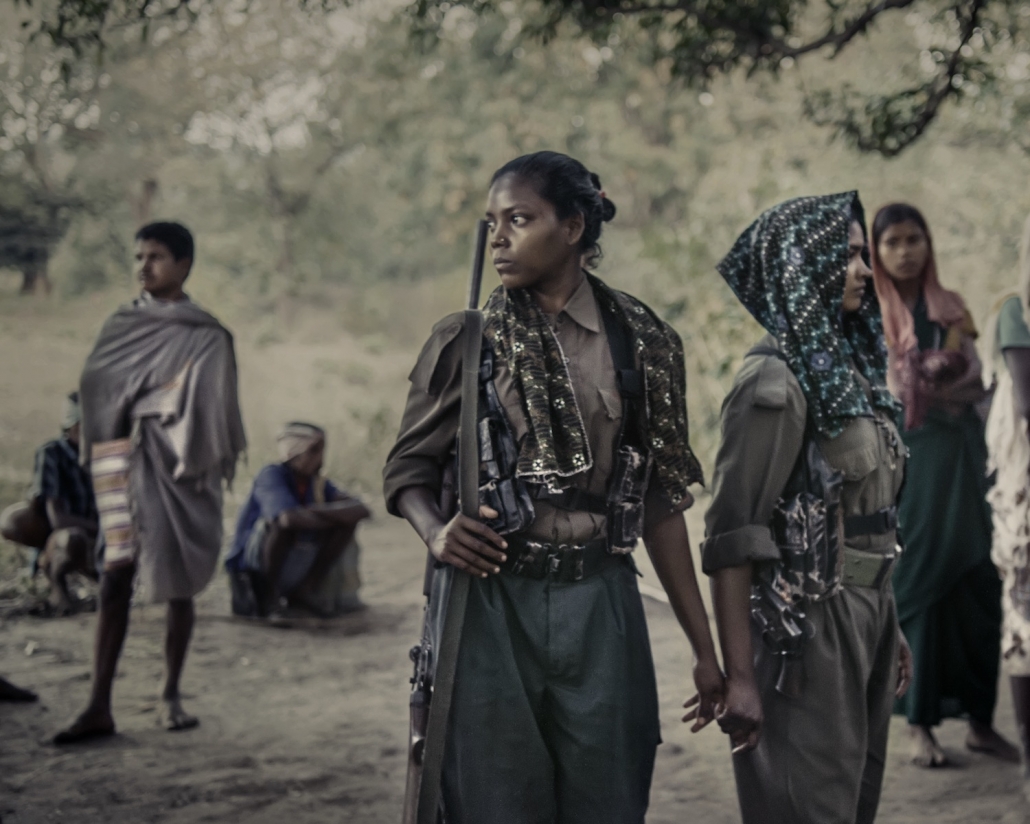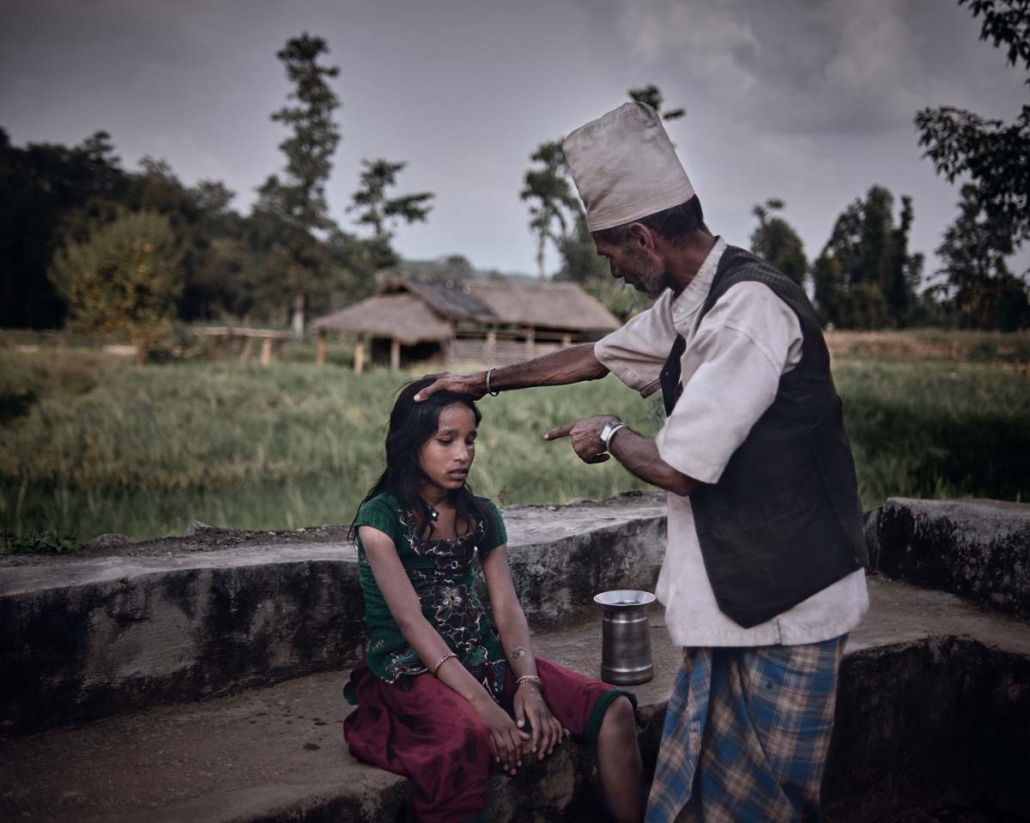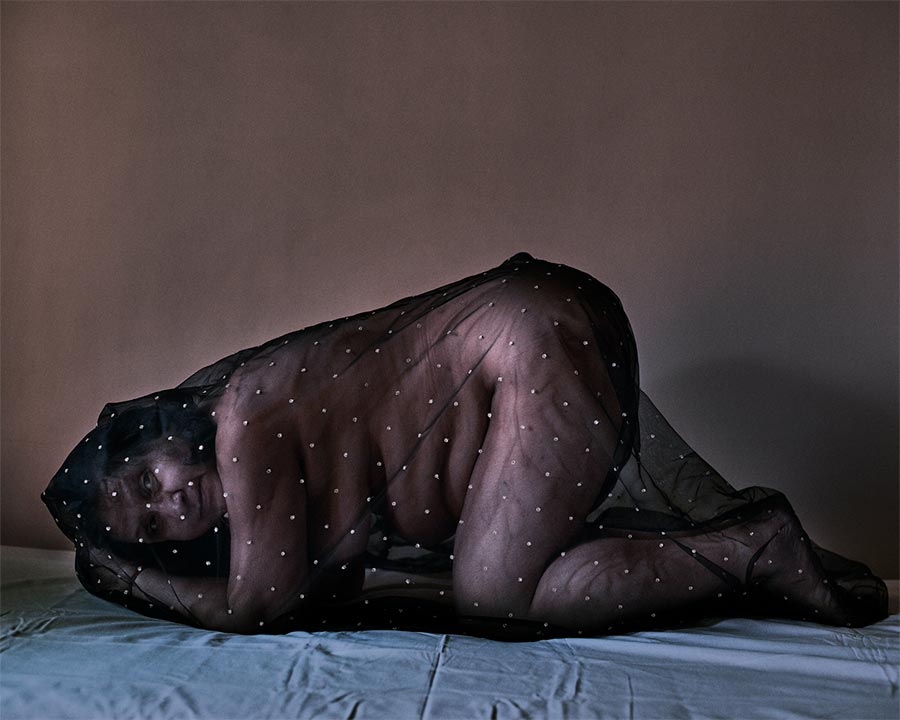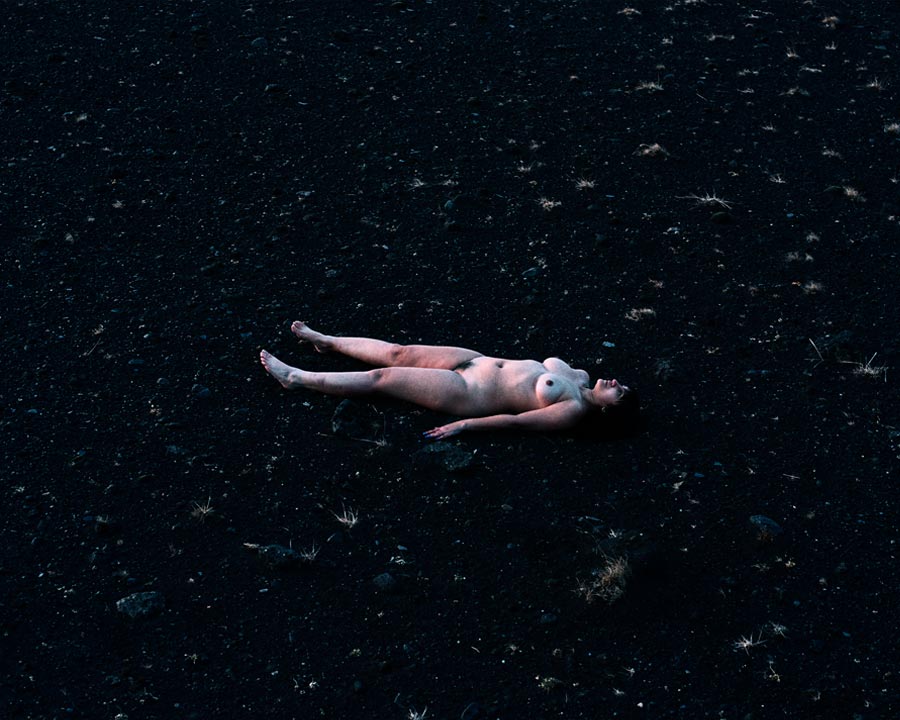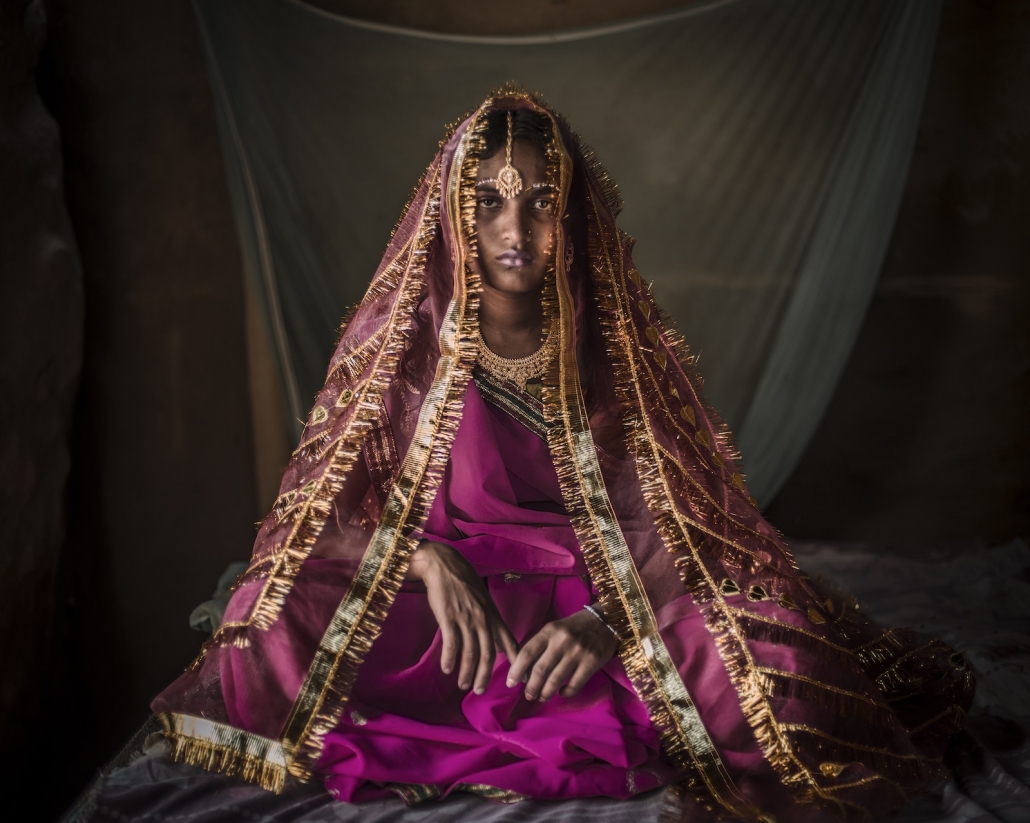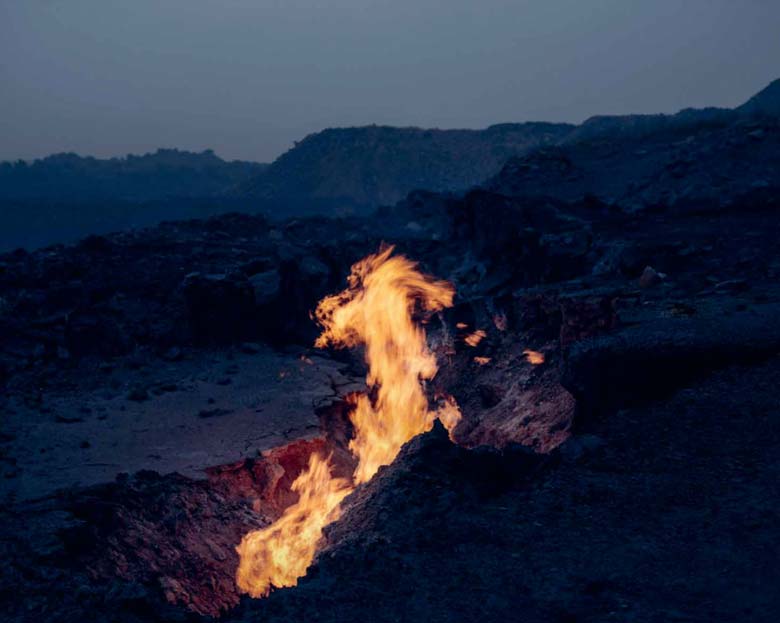Long Read: Interview with Poulomi Basu
“I owe it to the women who have opened themselves up to me. I want them to know that we are fighting this oppression together. And we are doing this with agency. Our collective voice of resistance.”
Content note: contains a personal narrative of domestic violence
Poulomi Basu’s work advocates for the rights of marginalised women using the power of photography as a tool for storytelling – amplifying the voices of women from the majority world. An Indian artist, photographer, and activist, she has become widely known for her powerful photographic projects Blood Speaks, Centralia and To Conquer Her Land, to name a few. Her first photobook Centralia was recently published by Dewi Lewis.
Autograph’s Curatorial Project Manager Bindi Vora has been working closely with Basu over the past eighteen months to present the international debut of her decade-long project Centralia, which was due to be exhibited in Arles as part of the Louis Roederer Discovery Award. Unfortunately, the unfolding Covid-19 pandemic has forced the cancellation of this year’s festival.
One of Autograph’s core aims has always been to enable artists to develop their practice. We recently sent Basu on the Autograph / Light Work residency, to support the development of her new series Fireflies. Each year, we team up with Light Work in Syracuse, New York – a non-profit, artist-run organisation providing direct support to emerging and under-represented artists working in photography. Autograph selects an artist to go on a residency at Light Work’s studios to pursue their personal projects: an exhibition, publication, printing, or even just space to think. They are provided with travel expenses, a stipend for living and production, a private darkroom, an apartment, and 24-hour access to Light Work’s photo and computer lab facilities. We’ve been doing this since 1996.
As we reflect on life since lockdown, Vora spoke with Basu about Fireflies, and some of the enduring legacies of women’s trauma.
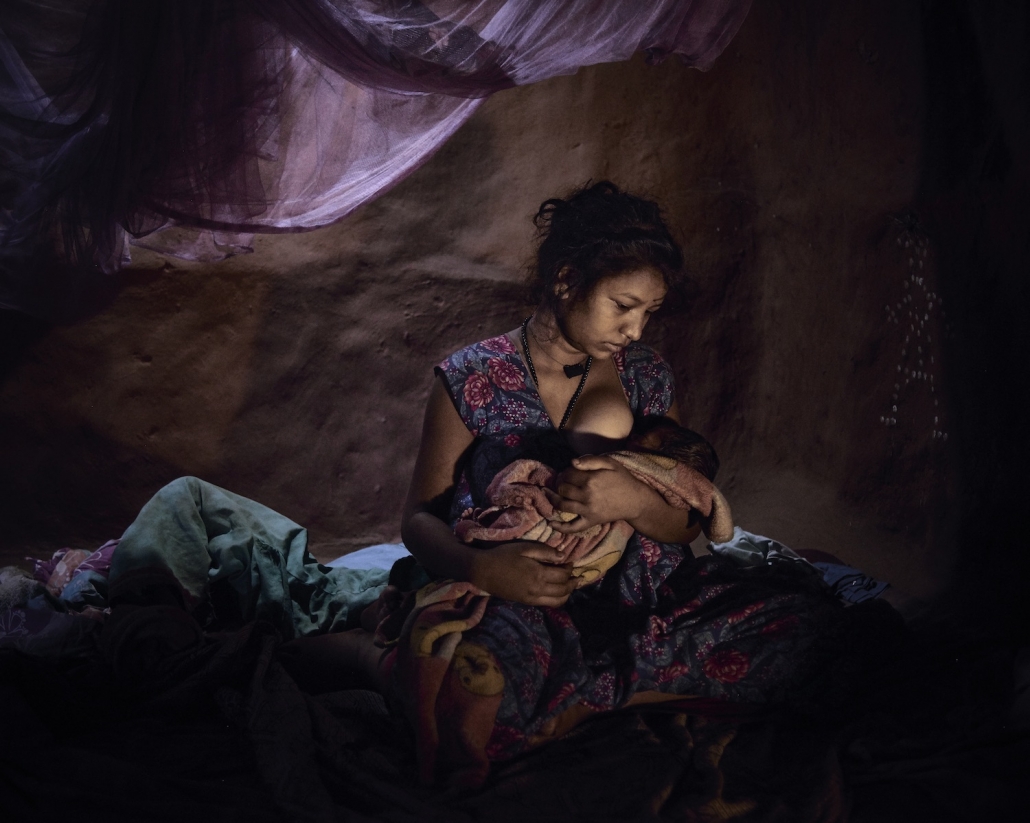
Bindi Vora: Fireflies is a new work you began editing during your residency at Light Work. To begin, it would be good if you could introduce the project, and how it’s been evolving over the last few years.
Poulomi Basu: Fireflies was a combination of ideas and of accumulated experiences which made me feel compelled to turn the camera upon myself; to tell my story of resistance and stand in solidarity with the women who have opened their lives to me.
The work is a response to the trauma of my own background as told through the relationship between my mother and I. When I was 17, my mother told me to leave home so that I would be able to live a life of freedom and choice that had been denied to her, and my grandmother, who were both child brides and then young widows. Rooted in my experience of domestic violence, this work navigates the blood lines of our collective trauma, mapping an elemental journey of survival. From the claustrophobia of the home, through to dreams of escape and transcendence, this is a kinetic and spiritual work lingering on the fragility of time and our earthly insignificance when contrasted against the celestial wonder of the natural world.
The work further explores the themes of gender, identity and violence building upon my previous works exploration of these topics. However, it further extends these explorations into hinterland between fact and fiction, using the tropes of female centred, science / dystopian fiction, to weave a narrative simultaneously real and fantastical.
There is so much pain, anxiety and fear behind most women I have met in life including myself. Yet we are strong and magical. I wanted to celebrate both those dualities.
BV: I want to first delve into the title of the project. Fireflies – as when I think about the idea of a firefly, it insinuates an occult reality, a sense of light, flight and freedom. There is a fine balance of magic which I think is emphasised within the context of this work.
When you initially shared the project with me as you were preparing for the residency, I began to research into the firefly, an insect that is characterised for its distinct glow and the way in which they use their luminosity to detract predators. It’s a power. Although we see an overall sense of harmony within the images and how they appear, as you delve further there is an underlying dystopian reality.
It’s this way of storytelling which I find runs as a common thread throughout your practice – such as in Centralia, where you have these incredible landscapes, juxtaposed with portraits of people who have been killed – all across one or two spreads (if we take a section of the Centralia book). It’s only as you delve deeper into the oscillating narratives and begin to read the stories of the female guerrillas, that you begin to sense the deciphering of truths as they converge into one another.
PB:Fireflies glow in the darkness. So, there is both this element of something free, pulsing and magical, yet dark. I associate that with feminine powers. Women are powerful and magical yet there is a lot of struggle laced in our history and constant battleground of misogyny and patriarchy. There is so much pain, anxiety and fear behind most women I have met in life including myself. Yet we are strong and magical. I wanted to celebrate both those dualities.
Centralia is a journey into the heart of darkness, but you find these powerful women in the work who are standing against the establishment and fighting back. They are fighting not only the economic and political realities, but also patriarchy and caste system. I wanted their voices to be heard, known and celebrated despite the nightmare they find themselves in.
I promise myself I would never live in the shadow of men.
BV: Activism and advocacy for women’s rights is at the heart of your practice, with sensibility and care as you collaborate with marginalised communities. You have this innate way of creating safe spaces full of choice, which empowers these women with whom you spend time, creating bonds to share their story through their words.
Blood Speaks for example, changed the law in Nepal – it outlawed the physical controls imposed on women whilst menstruating. Although more work by lawmakers needs to be done to completely banish this practice, it’s a huge achievement for those suffering under these constraints. To now turn the camera on yourself and perhaps in some ways use this as a form of therapy to heal a deep trauma, that has for years sent ripples within your family dynamics. Why is this work at this stage of your life important for you to make?
PB: I grew up in a very volatile home feeling very ashamed of myself and my self-worth constantly under the shadow of men. I watched women in my home including myself getting repeatedly abused and our potential diminished. My father sometimes used to beat me up with an iron rod and other days stop me from going to school to write my exams. He would take away my school uniform and school shoes. I remember calling up friends borrowing their extra clothes and turning up in school without proper shoes and then getting punished in school for that. But at least I got to write my paper. It was very violent and controlling. But I knew having a proper education was my ticket to freedom. But I had to fight for it. But many girls don’t have that option even today.
I wanted to be a dancer. I was trained in classical Bharatnatyam, lyrical jazz and funk jazz dance growing up and I used to perform in shows. When I turned 15 that was stopped too because my father thought that professional dancers were harlots. Because I wanted to be a dancer, he called me a slut.
India is an exclusively male space. Misogyny filters through almost every environment. I really wanted out. I became a very rebellious teenager as a result, and I promised myself I would never live under the shadow of men. I was 17 when my father passed away and that was my chance really. My mother asked me to leave our home and the city of Calcutta and try and live a life of independence and choice that was denied to her. So, I packed my bags and left.
Today I live in the UK. But it’s been a crazy long journey uprooting myself. I have directly seen the impact of abuse and of not letting women get ahead in life very closely. My work on women is a direct outcome of what I have experienced in my life. Trauma lingers long and I don’t know if peace will ever come. Both my mother and I felt ready to make this work. We are ready to tell our story. This work is the root of my artistic practice and activism. This is where it all began. I owe it to the women who have opened themselves up to me. I want them to know that we are fighting this oppression together. And we are doing this with agency. Our collective voice of resistance.
It is not enough for me to just provoke an audience. Because then you leave them no agency of what they should do next? Empathy is not a destination.
Blood Speaks deals with blood politics and its larger implications, such as menstrual exile, child widows, sexual abuse, dowry deaths, child brides, abortion, women in lifetime prison who have killed their abusive husbands to escape all kinds of stories. That work has encompassed large campaigns, community engagement, art as social practice. It took five years of hard work but ultimately, we saw light at the end of the tunnel. The practice of menstrual exile, known as chaupadi, was criminalised, and finally arrests are now being made. Thankfully! It’s a start but more work needs to be done.
It was not easy making that work. I have had death threats on the field. Once a man came at me with an axe because his wife decided to collaborate with me. Another time, during my first major project To Conquer Her Land, at an army camp I had a continuous knock on my door for three hours in the short hours of the morning. I was alone there. Another time, I saw a teenage girl getting horribly beaten and shamed in font of 30 men because she entered his threshold while menstruating. So, it is quite devastating to witness. I can tell you endless stories as to what I have seen women go through. With Centralia, if I give up my Indian passport my country likely will blacklist me from coming back because of the human rights crimes and extra judicial killings I have recorded. I was embedded with the guerrillas and told the stories of the female guerrillas. So yes, it is hard doing social justice work. Too many forces are against you. And then there’s always mental health, worries and self-care.
I was not interested in winning art awards and medals. It is not enough for me to just provoke an audience. Because then you leave them with no agency of what they should do next? Empathy is not a destination. I have barely exhibited the entire work. I do hope more people show the complete work somewhere. But I was really interested in seeing a constructive ground swell and impact. And I am actually glad it changed a law rather than me winning awards or climbing up the art ladder.
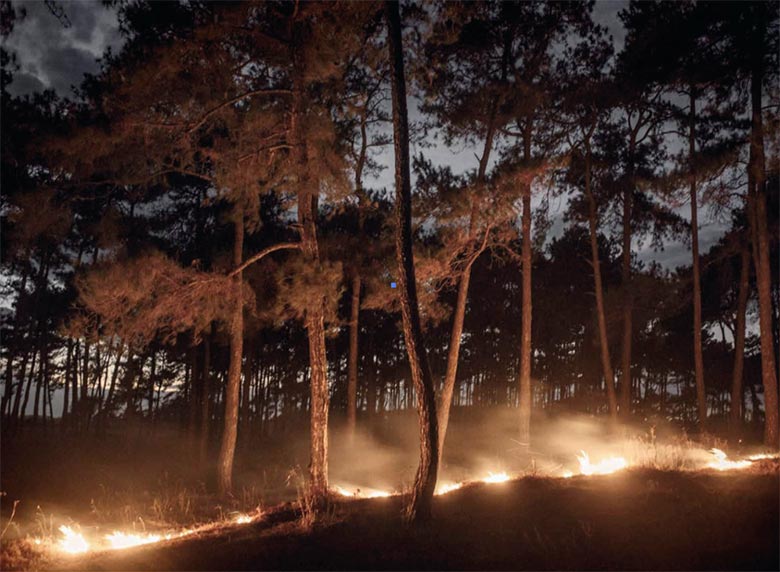
BV: It would be very naïve to skip past the obvious traumas that are present with this work. But, I want to talk about your relationship with your mum. From our conversations, I know it’s a bond that despite all the challenges so far faced is incredibly strong. How does she feel about this work and her roll in this project as your co-collaborator?
PB: She feels very empowered to be able to conquer our collective shame. The injury, taboo and violence we have faced. She is an extremely bold, creative and forward thinking woman. If she had a real complete education and a chance in life, she’d be very successful. This I feel is true for many women. We have a very strong bond. But I do live in daily guilt of being able to escape while she is still trapped in a culture of violence. That thought haunts me every day. Even in my freedom I feel her pain. That is why it is important not only to tell women stories but to actively work towards ‘activating’ them. I have had many people who have sponsored girls after seeing stories I have done. So, it is possible to amplify our voices. Just have to keep working as fighting for women’s rights. It is an unrelenting battle. I do feel it is my calling. But it is also our collective responsibility.
BV: I think in some ways this leads me to the very strong undercurrent of science fiction that runs within the work. The locations you’ve chosen together, the spaces in which the bodies feel boundless – such as you floating in the abyss of water. Did tropes of fantasy and dream help you work through some of the more difficult and / or painful elements in which you both appear vulnerable.
PB: Creating a fantasy, a kind of fiction, creates a level of abstraction, allows me to view myself from an external perspective, to universalise my interior world and struggle so that these abstract thoughts and feelings can be communicated to an audience. Within my work, as seen in Centralia, I am interested in blurring the line between reality and fiction; in creating work that exists in a hybrid state. The tropes of science fiction allow for the reimagining of reality; of creating an exterior world that is comprised of elements that are normally interior. In this way the dystopian landscape becomes a metaphor for my vulnerabilities. The landscape as trauma.
BV: How has the residency at Light Work helped you develop the work?
PB: During my time in Syracuse I was able to fully immerse myself in this work. Diving deep into these themes and ideas to edit a selection of images that were true to my original conception of this project. In doing so, I was also able to begin development of the written piece that will sit alongside both the images and is to be used within the 16mm films I am creating. This written piece takes the form of a free form poem that provides a thematic and narrative backbone to the project.
Additionally, I would say that the financial part of the residency helped me to travel and make the 16mm film and the photographic elements of Fireflies. I also started drafting my first script whilst at the residency. But that has evolved since then. A script needs to sit for a bit before it is final and ready in my opinion. Photographically, I will continue to develop this body of work, but at present, I would consider a portion of the photographic element complete. The work also comprised of two films. Editing is underway of the two films. They will be ready in 4-6 weeks. I am collaborating with filmmaker CJ Clarke on the films.
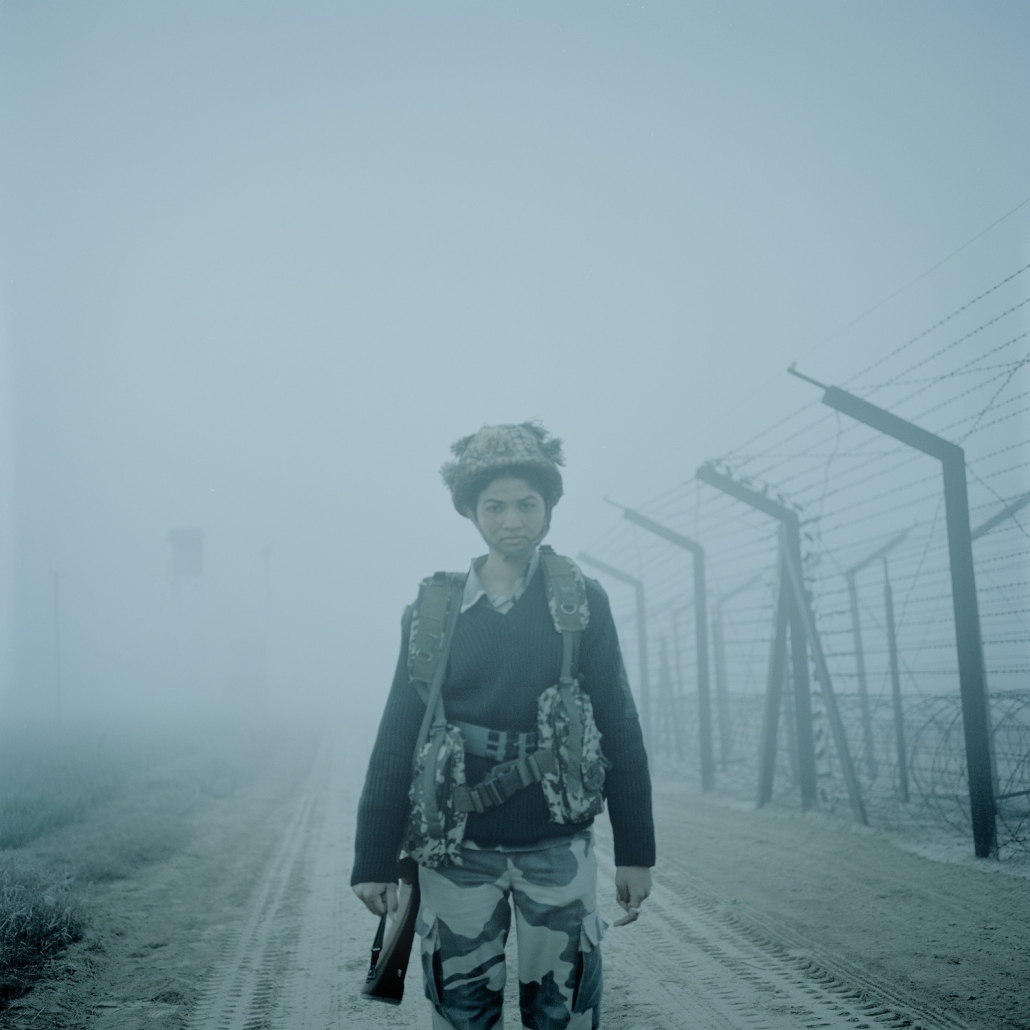
BV: The global presence of Covid-19 has dominated and consumed all aspects of our lives in over the last few weeks and months. Do you think the exploration of the self especially in relation to this project has evolved even further?
PB: As with any work of art, I feel like Fireflies is reflective of the times in which it is made, perhaps more so given the themes of isolation and self-exploration, very much in evidence within our Covid affected societies. The conception of the work took place pre-Covid, but the evolution of the themes are definitely affected by what is occurring at the moment, and perhaps certain elements are more evident as a result. Whilst Fireflies is not a work directly about Covid, it definitely is, in part, a meditation on isolation and the resulting journey towards inner space that takes place as a result of such prolonged exposure to the self.
If we keep looking out for the community, the community will look after us. There is no greater need for this, than now.
BV: Since we began this conversation, a devastating cyclone hit Calcutta and west Bengal – I know this is your home city and your community and being in the UK it must feel even further away, to just observe the destruction as a spectator.
PB: Home has never felt this far away. We haven’t had power for almost 28 hours now*. My mother’s phone is about to die and in typical post-apocalyptic fashion Ma using the last bit of battery to let me know she is safe. Horrifyingly, the BBC has reported more on this than our national media, and the central government remains silent. All the trees have fallen. Hope seems lost. The scale and power of what happened yesterday has shaken us. We still don’t have power / running water / drinking water / windows smashed glass everywhere / water inside / intermittent phone network / a staff got through at one point to say our books storage studio is flooded. Our precious stock, books, stationery for school students and our shop, that has kept us going through this mess, paying rent and salaries. We are in despair, but my family still have a roof over their head. There was chaos in our brick home, can you even imagine what happened to the rest of Bengal?
Bengal, which is one of the poorest parts of the world in the best of times. Rural Bengal is finished. Calcutta is chaos. Millions of people are hungry, homeless, unemployed and possibly facing sickness in the midst of the pandemic. The shelters are overflowing, and social distancing is not possible. If I was terrified about my brick home, I cannot even imagine people in less sturdy structures, those on the streets and the animals. People have lost everything. The Sunderbans, the entire ecosystem has been damaged. Tigers and people are dead. The bottom has fallen out of Bengal. We don’t know what to do. 84,000 houses damaged in Khulna in Bangladesh. By the time you read this there will be thousands more.
Looking at all the photos of fallen trees in despair and thinking there is only one thing that will heal us now: community. People everywhere, Bengal needs your help. And people of Bengal, Bengal needs your help. We need to put everything aside and rebuild together.
It’s been helpless and unnerving to be a remote spectator to the absolute havoc caused by cyclone Amphan in a place I grew up, and where my Mother lives. It’s also inherently human (and flawed), to realize the gravity of something just when it hits home.
What I do completely believe and trust in is Calcutta’s innate resilience in the face of crisis, and the grit to move ahead, and help one another while doing so. Also, in a Calcuttan’s ability to bring humour in while dealing with the most dire of situations. If we keep looking out for the community, the community will look after us. There is no greater need for this, than now.
* Power was restored in Basu’s mother’s house 128 hours after the cyclone hit.
BV: Resilience through all these hardships, the peaks and troughs will be key to our survival. What comes next for you?
PB: 2020 has been a strange one so far. On one hand my book completely went out of print and is a ‘lockdown bestseller’ on another hand I have seen huge cancellations of my shows and other events. I really think we will emerge out of this pandemic portal different versions of ourselves. In some cases, injustices will be deepened in some other cases we will come out more kind and spiritual.
It remains to be seen which end we decide to be on.
All images in this article courtesy of / © Poulomi Basu
MORE
Poulomi Basu recommends donating to the Amphan Cyclone Relief Fund to help support relief efforts
Basu’s book Centralia can be purchased from Dewi Lewis and Light Work
See more on Poulomi Basu’s website
Bindi Vora recommends this article by 1000 Words about Basu’s work

